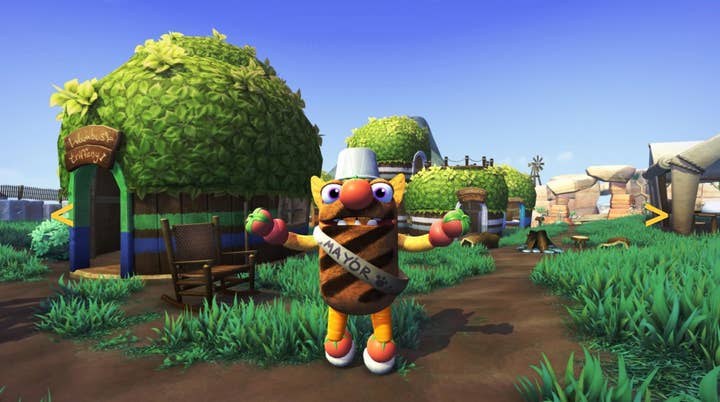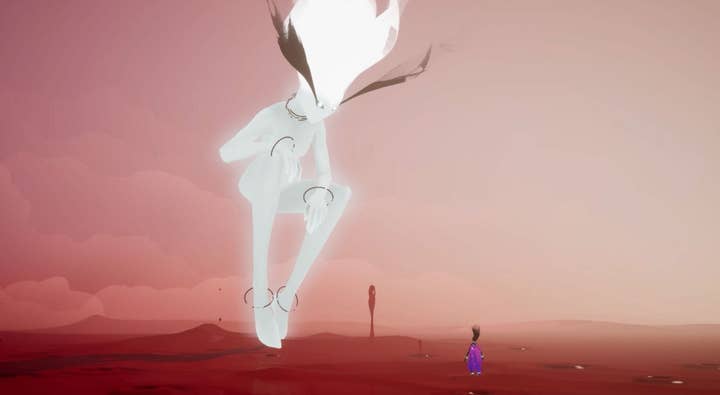The changing face of PlayStation is nothing to fear | Opinion
Sony's blockbuster game focus is an opportunity for indies
PlayStation has changed.
It's a not new thing, it's been changing for some time. It's centralised its business, established a new senior management team, transformed its communications strategy and refocused its development studios.
Some of those things are more drastic than others. It has new leadership, but it's still mostly made up of people who have been leading PlayStation in some capacity for decades. We've discussed some of these changes before, but it's the latter alteration -- around changing the games it makes -- that is currently generating the most discourse.
Sony has enjoyed a tremendous generation in terms of first-party studio success. It has seen more than half a dozen games exceed 10 million sales during the PS4 era, which is a feat only the Gran Turismo brand had managed previously. But it's not just commercial; these games -- God of War, Bloodborne, Horizon: Zero Dawn, Uncharted, The Last of Us, Spider-Man -- have been hailed as some of the finest games of the last seven years. It makes a lot of sense for Sony to lean into this success, to invest in it and even turn some of those brands into movie and television properties.

Nobody is complaining about that, of course, but the concern is that this is coming at the expense of Sony's more unusual, quirky games.
It's not fair to say that PlayStation isn't making weird and wonderful titles -- it's still supporting projects like Dreams, and commissioning games like Astro's Playroom and Returnal. But these are still AAA products, so what about those excellent smaller concepts like Gravity Rush? Tokyo Jungle? Rain? The Unfinished Swan? LocoRoco? Patapon? A lot of those games stemmed from Sony's Japan Studio, which has been scaled back earlier this month. Indeed, Sony has closed or refocused many of its smaller teams over the last few years (particularly those responsible for VR or portable titles), while it has increased investment in its bigger, AAA teams.
This comes during a time when Xbox is acquiring studios of all shapes and sizes. Not just the makers of Doom and Fallout, but developers working on a variety of niche, innovative concepts. It makes for an awkward narrative where one company is investing in bigger properties at the expense of smaller ones, while the other is investing in everything.
Yet the comparison isn't like-for-like. Xbox and PlayStation are playing slightly different games. Microsoft is fully focused on building a subscriptions platform and that requires a constant stream of diverse content to keep people engaged and coming in. Third-party studios are interested in placing their legacy products within Game Pass, but are reluctant to do that with their new releases, and it's the big shiny new games that drive subscriber numbers. Therefore it's on Xbox to deliver those new games, which it is doing by spending money and expanding its studio empire.
Of course, all these new teams and games will boost Xbox's console hardware business, too. But with its cross-platform strategy around PC and xCloud, the comparison with what Sony is doing is a bit more complicated.
PlayStation has a growing subs business, too, but its focus (right now) is on PS5. And unlike Game Pass, it's not all on Sony to ensure there's a regular cadence of new content coming to the console.
"PlayStation may not be making some of the games it used to anymore, but that doesn't mean they're not being made"
I've always felt the role of a console platform holder (and yes, it's a little different for Nintendo) is to show the way for its third-party partners. That includes showing the technical possibilities of its hardware -- which Sony has done through Astro's Playroom and its other first-party PS5 games -- but also what's possible in terms of genre, theme and content. In a six-month window last year, PlayStation's first-party teams released three major AAA blockbusters without a white male protagonist, showing what's possible to its more cautious third-party partners.
First-party shouldn't be competing with third-party. I've always felt this was why Sony has largely avoided releasing its games during the busy Q4 release window (console launches aside). The fact that PlayStation has developed so many single-player AAA narrative games while EA, Ubisoft and Activision have invested in big multiplayer experiences speaks to that, too. If third-party studios are all making big online loot-based shooters, then there's no need for first-parties to get involved.
Following that argument, in a world where there are hundreds of incredible indie games being released and struggling for attention, should Sony really be competing with them by making its own? Would it not be better served facilitating and supporting indie developers to make Journey-like games, rather than going up against them?

In 2019, PlayStation announced that Shuhei Yoshida, the popular development guru who had been leading Sony's Worldwide Studios, would now lead the PlayStation Indies initiative. Some saw it as a demotion, but it actually looked like the ideal role. Yoshida's job is to make sure all those beautiful and strange games that he had helped cultivate on PlayStation continue to get made, just from a different source.
The PS5 launch title of Bugsnax is a good indicator that Sony hasn't turned its back on these experiences, backed up by the recent release of indie puzzle game Maquette and the forthcoming lineup of Kena: Bridge of Spirits, Solar Ash and Goodbye Volcano High (to name but a few). Yoshida handed out an award at our Indie Publishing Awards last week, and the firm has just sponsored Japanese indie game hub Asobu.
Far from it being Sony abandoning its roots, it's a reminder that this is a platform that has always built itself on the back of great third-party games like Resident Evil, Tomb Raider, Final Fantasy, Grand Theft Auto and Metal Gear Solid.
PlayStation may not be making some of the games it used to anymore, but that doesn't mean they're not being made.

